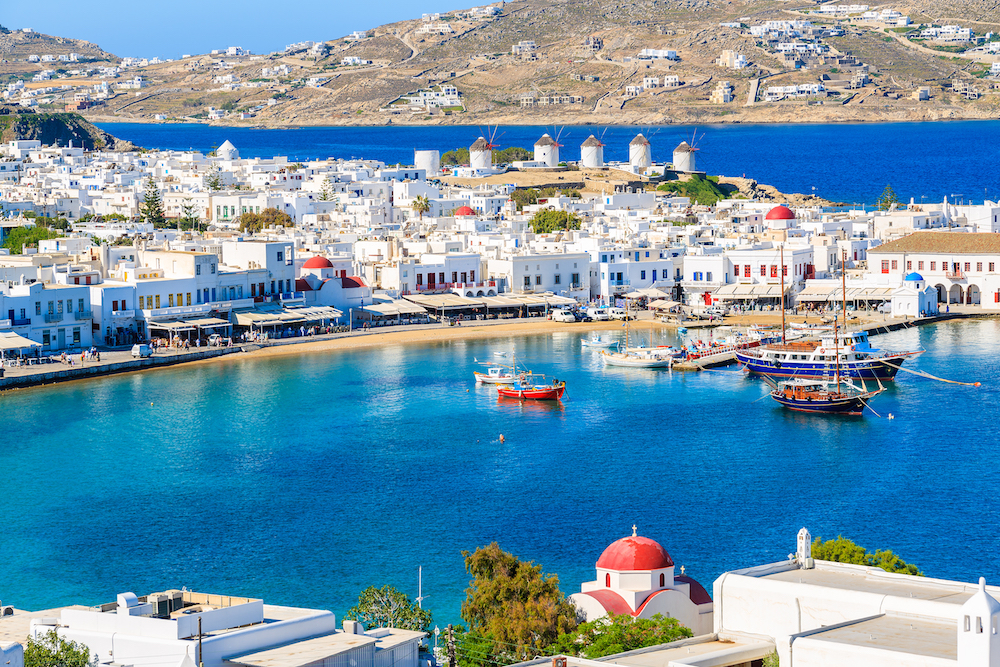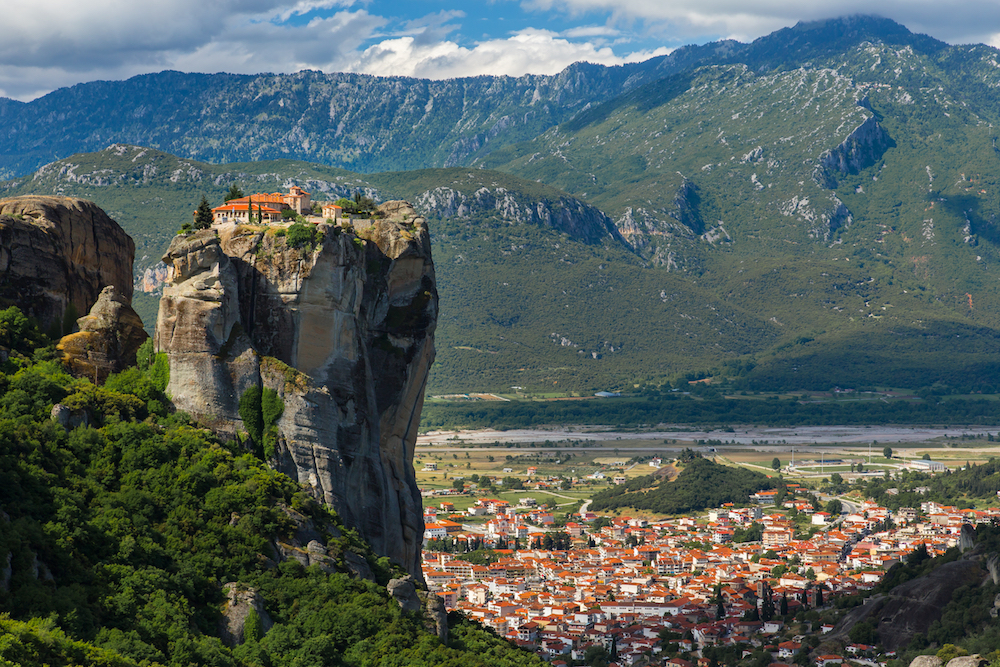The dramatic cliffs tumbling into a sparkling, cerulean sea. The white-washed stone houses, dressed in electric blues and fluorescent pops of pinks from the bougainvillea. There may be no greater location on earth to sit with a frappé, watching the sun sink beneath the sea.
Know where we are yet?
The Greek isles are consistently listed as some of the most photogenic, and bucket-list-worthy, places on the planet — and for good reason.
The picture-perfect island of Santorini, with its craggy cliffs and proliferation of blue-domed buildings, is a honeymooners’ favorite, while the nearby islands of Naxos and Paros provide quintessential Greek island living without the crowds.
Athens is an absolute go-to for lovers of history, with a stop at the Acropolis sure to make every high school classics teacher proud. In the north of the country, the soaring monoliths of Meteora need to be seen to be believed — the monasteries perched precariously on sandstone peaks are one of the country’s most incredible UNESCO sites.

And that’s saying something because Greece is home to 18 sites inscribed on the World Heritage List.
And then there’s the modern metropolis of Thessaloniki, the party haven of Mykonos, and the remaining 200 islands scattered throughout the Aegean and Ionian seas to explore. The country’s natural diversity cannot be overstated.
And while Greece is a favored destination for travelers, honeymooners and bucket-listers the world over, it’s been a growing favorite among Arab travelers in particular in recent years.
While data from Marketing Greece doesn’t record data from the Arab world as a whole, they do have an idea of how many travelers come from the region’s largest traveling hub, the UAE.

It shows that in 2016 there were 182,383 visitors to Greece from the UAE, with steady increases year-on-year until 2018, when the country welcomed 235,332 travelers from the UAE. That dropped to 210,730 in 2019. Data hasn’t been collected in 2020 due to the pandemic.
Anecdotally, the company says it is clear that Greece is a popular destination for travelers from across the region.
So just why do Arab tourists have such a penchant for Greece?
“We can only assume that food similarities, culture and ease of flights are among the reasons,” Marketing Greece Chief Executive Ioanna Dretta said, adding that the “lifestyle, as well as the fact that Greece is an attractive business destination for the Arab world with direct and indirect investments in Greece’s economic sectors,” were other factors.
Ample flight options certainly make it an easy destination to visit. From Riyadh, Emirates and Etihad fly to Athens with a stop in Dubai or Abu Dhabi, as does Turkish Airlines with a stop in Istanbul, while from the UAE it’s an easy five-hour flight on Emirates or Etihad. Abu Dhabi’s new low-cost tie-up with carrier Wizz Air also now flies direct to Athens.

But a few clues in its popularity may also lie in Greek fare and a culture that isn’t so different from many in the Middle East.
Greek cuisine is rooted in many common favorites of Mediterranean nations: wheat, olive oil, fresh fruits and vegetables, and hearty meals composed of grains, fresh fish and meat.
At any Greek taverna, you’ll find plenty of fresh salads and pita bread on the menu — the taste of sun-ripened tomatoes in Greece is beyond compare — as well as souvlaki, moussaka, stews and catch hauled in from the boats that morning.

The act of eating is to be treasured with family here, and meals are made up of many smaller dishes, not too dissimilar to those in the Middle East.
The Greeks are an incredibly welcoming and generous people, all too happy to invite a stranger in for food or go out of their way to ensure a traveler is being looked after.
Lastly, their laidback lifestyle is seemingly set on savoring every moment. It’s why, for many travelers leading high-octane lives in the likes of Riyadh or Dubai, a trip to Greece is a brief, and beautiful, moment of respite.




Comments are closed.